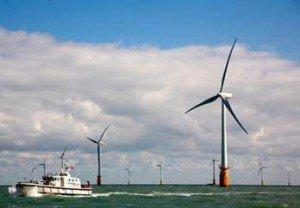By Colin Houghton
The British are, of course, obsessed about the weather. They talk about it incessantly and despite the fact that 80% of the time it’s just cold, dull and grey, they are always complaining it’s too hot, too wet, freezing, or trying to predict weather it’ll “turn out nice” for the Bank Holiday weekend (it never does). Usually Britain has warm, wet and windy winters, thanks to Caribbean air carried here by the Atlantic jet stream, a fast-flowing current of air.
However an article in a UK Daily Newspaper caught my eye saying that despite some recent very windy weather in England and in some places reaching gale force, there is a prediction that Britain may lose its puff! Surely not!
According to government meterological figures, 13 of the past 16 months have been calmer than normal – while 2010 was the quietest year of the past decade in terms of winds. The article uses this information to say that changes to the Atlantic jet stream could alter the pattern of winds over the next 40 years and leave much of the United Kingdom’s growing army of power-generating turbines if not becalmed, then operating at less efficiency than hoped for.
The British Coalition Government has drawn up plans to open more wind farms in an effort to meet Britain’s European Union target of providing 15 percent of its energy from renewable sources by 2020. More than 3,600 turbines are expected to be installed in offshore wind farms over the next nine years. Why would we be doing this if the wind’s going out of the industry? Well it’s not!

These claims from some meteorologists are based on the the position of the Atlantic jet stream. They say this has been influenced by the lower levels of activity on the Sun. This decline in sun-spot activity is expected to continue for the next 40 years.
However the article has provoked a lot of criticism and counter-claim. For example, the freezing conditions that blasted Britain last Winter were blamed on a series of weather patterns that brought Arctic temperatures to much of western Europe, California and even Australia. One of the main factors blamed was a change in the position of the jet stream further south, allowing biting cold winds in from the north. Yes- biting winds- so where’s the problem for wind power? The newspaper article was based on a scientific study, published in Science Daily and upon accessing the source document, I discovered that the main findings were in relation to lower temperatures across Britain in Winter, not lower winds. Did the article get hijacked by the newspaper’s anti-wind journalist I wonder?
In an article in the Journal of Geophysical Research at the end of last year, Vladimir Petoukhov, lead author of the study and climate scientist at the Potsdam Institute for Climate Impact Research, said that the relationship between reduced sunspot activity and climate change was relatively weak and exaggerated. He also said that the (global) warming of the air over the Barents-Kara Sea seemed to be bringing cold winter winds to Europe, including Britain.
Finally, let’s not forget, Britain has never been consistently outstanding at forecasting its own weather even a week ahead, so to predict what the winds will be like in 40 years? I’d rather bend with the wind!



